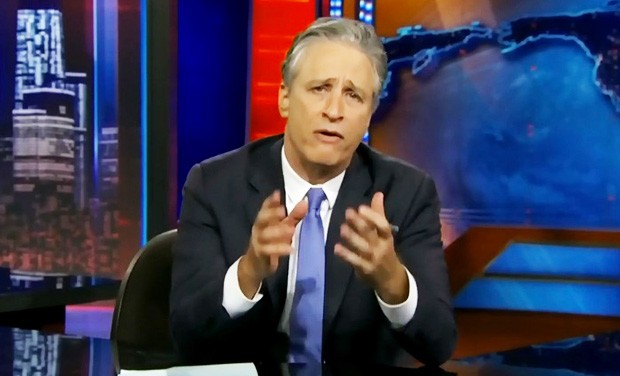Will Jon Stewart change the way we study journalism?

Comedy Central really pushed the celebrity boat out for Jon Stewart's The Daily Show finale last night.
Martin Scorsese showed up for one last Goodfellas spoof. Governors, presidential hopefuls and other political-world VIPs gave less-than-fond farewells (John McCain signed off with a cheery "So long, jack***!"). Bruce Springsteen played a tune.
Stephen Colbert, of Daily Show spin-off The Colbert Report, even went off script:
“You are infuriatingly good at your job," he said, "and all of us who were lucky enough to work with you for 16 years are better at our jobs because we got to watch you do yours, and we are better people for having known you."
But after the stardust settles, what will be the journalistic legacy of Stewart's 16-plus years of news satire?
"I am not sure he changed journalism as much as he brought attention to those who practice bad journalism," says Brian Gabrial, chair of Concordia's Department of Journalism. "Namely, putting out stories that are unbalanced or unfair, or use questionable sources.
"He also identifed for many how ridiculous the bloviators on cable news channels are. I think Stewart holds in high esteem great journalism. I think he admires any journalist who speaks the truth to power, which is what he was so good at doing."
Will this Stewart effect change the way journalism is taught?
"I cannot say that The Daily Show or Stewart changed the way journalism is taught at Concordia, because our department holds to the standards of what journalism is supposed to be, not what students are necessarily exposed to in the news media," Gabrial says.
"But I will admit that our students all seem to want to do what Stewart did: expose hypocrisy and fraud."
Find out more about Concordia's Department of Journalism.